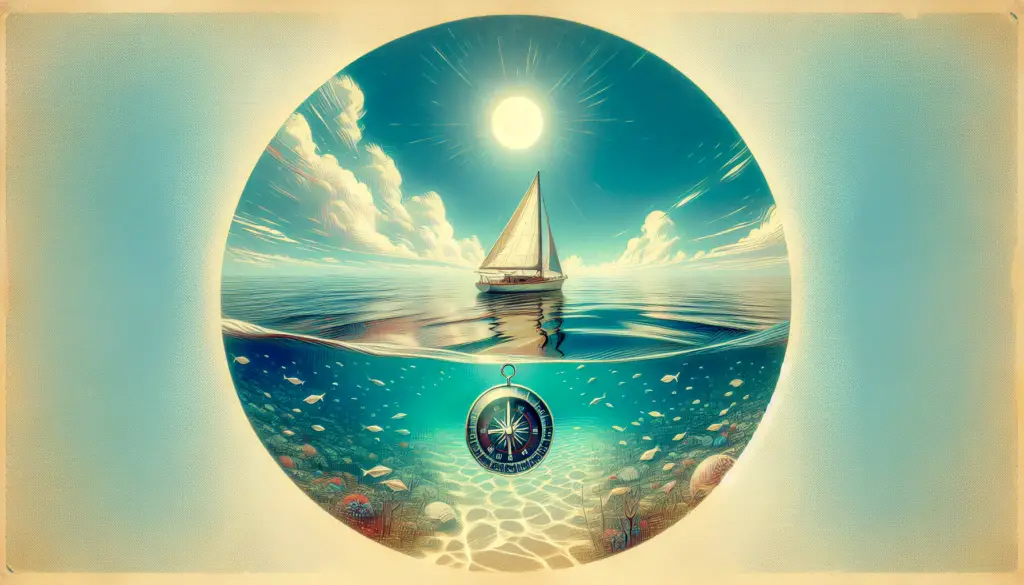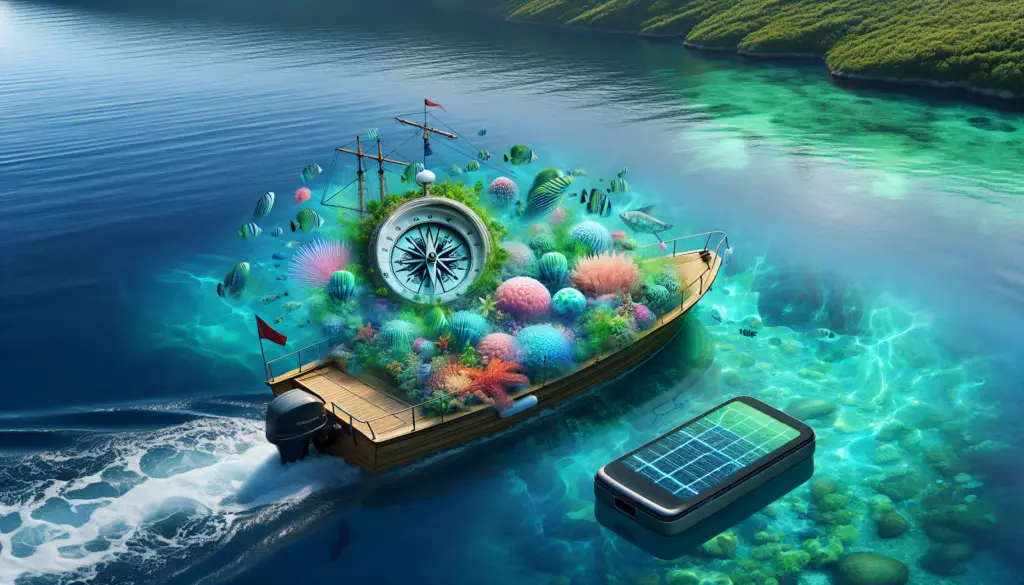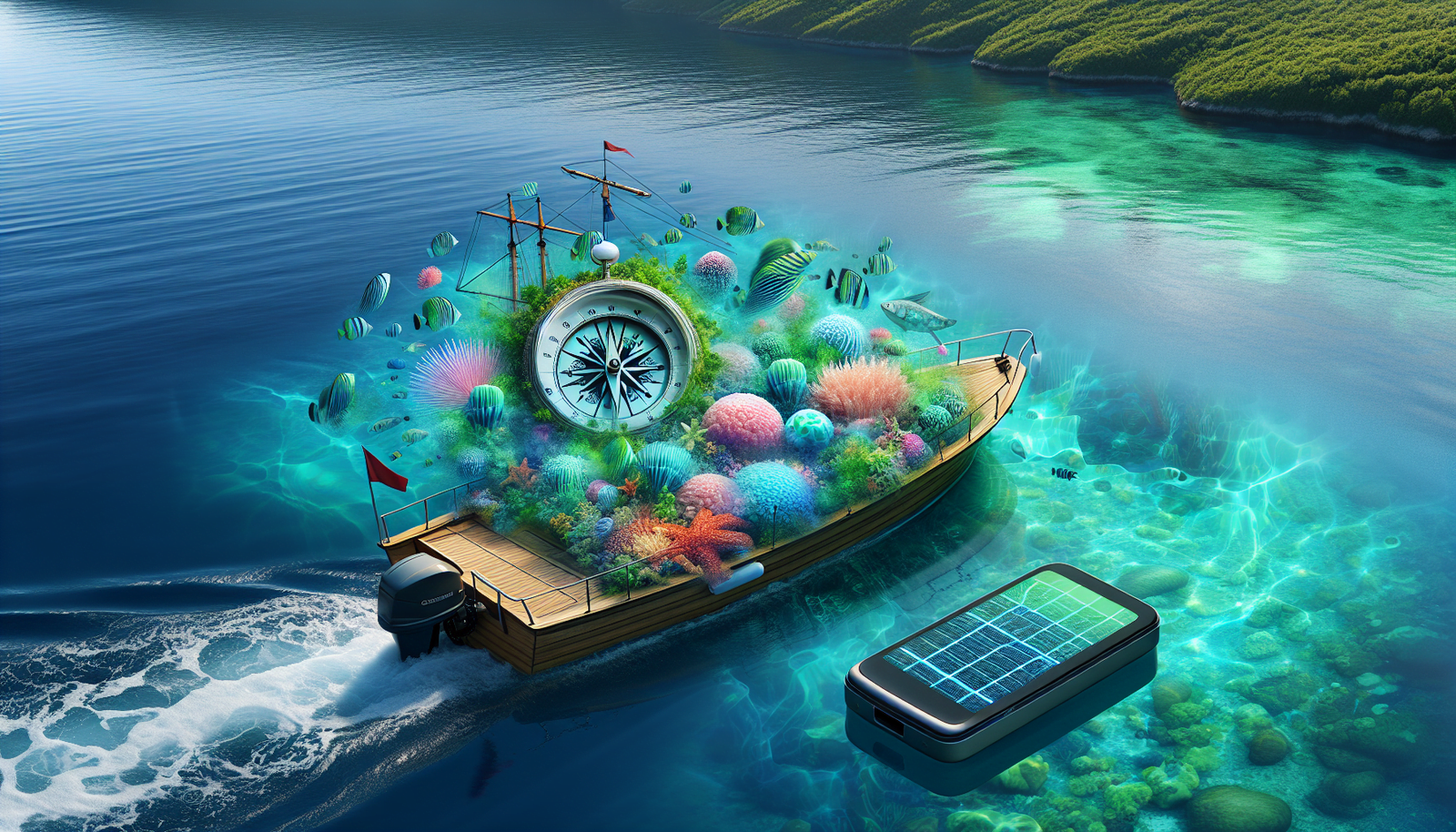Navigating the great expanses of water that our planet offers is an unparalleled joy. But as a conscientious boater, you’re always looking out for ways to protect the beautiful marine environment you so enjoy. That’s exactly what the article “Eco-Friendly Navigation Techniques for Boaters” is here to help with. This exciting read will help you fine-tune your navigation techniques while doing your part to preserve the waterways. Full of practical tips and sustainable strategies, it will empower you to forge a stronger bond with the water while reducing your ecological footprint. It’s an essential read for the environmentally-conscious mariner. Set sail on a journey of learning and responsibility, you no longer have to choose between passion and protection.

Understanding the Importance of Eco-Friendly Boating
Boating is a leisure activity that we all love, but have you ever thought about its environmental impact? The importance of eco-friendly boating can’t be overstated. It’s not just about making better choices for ourselves but about safeguarding the environment for future generations.
Environmental Impact of Traditional Boating
Gone are the days when we could remain oblivious to the environment. Traditional boating practices, which often involve the use of toxic materials and high-consuming engines, can harm marine ecosystems. These practices contribute to water pollution, noise pollution, air pollution, and even physical damage to delicate marine flora and fauna. For instance, oil spills from boats can pollute waters, threatening aquatic life.
The Need to Preserve Aquatic Life
The urgency to reduce harm to marine environments has never been greater. So much of the diversity of life on earth is found under the sea. Fishes, coral reefs, sea anemones, and countless other species live in these ecosystems, and they’re worth preserving. And let us not forget the local communities that rely on sustainable fishing practices for their livelihoods. There’s so much at stake, and eco-friendly boating can help us protect it.
Choosing Eco-Friendly Boating Equipment
Taking a mindful approach when purchasing boating equipment can considerably lessen our impact on the environment.
Energy-Efficient Marine Engines
Energy-efficient engines use less fuel and produce fewer emissions, making them a greener choice for boating. Technologies such as fuel injection systems and electric propulsion motors lead the way in this area. They may be more expensive initially, but the environmental and long-term financial advantages far outweigh the initial costs.
Choosing Sustainable Materials for Craft Construction
The materials we choose for our boats play a significant role in determining their ecological footprint. Sustainable materials such as wood, metals, and non-toxic paints and finishes cause less harm to the environment during manufacturing and disposal. Moreover, these materials often give boats a unique aesthetic quality.
Implementing Eco-Friendly Navigation Practices
Implementing eco-friendly navigation practices can make a significant difference in reducing the environmental impact of boating.
Relying on Wind and Current for Boat Propulsion
There’s a reason sailing has been around for thousands of years – it’s not just romantic, it’s environmentally friendly too! By using the wind and water currents to your advantage, you can sail smoothly without relying on polluting fuels.
Limiting Use of Motorized Engines
Reducing the use of motorized engines, especially in sensitive marine areas can help to diminish environmental damage. Save the engine for when the winds and tides don’t go according to plan, and you’ll be well on your way to eco-friendly boating.
Green Routing to Minimize Environmental Impact
Once outfitted with the right equipment and mindset, the next step is green routing, which helps us minimize our strikes on the environment.
Planning the Route Effectively
Plan your route effectively to minimize fuel consumption. Avoid zigzag navigation and maintain a steady speed to keep the fuel efficiency high.
Avoiding Sensitive Marine Ecosystems
It’s crucial to give wide berths to sensitive marine ecosystems, like coral reefs and mangrove forests. Not only can boat traffic harm these habitats, but it’s also legally protected in certain regions.
Understanding Weather and Tide Patterns
Knowing how the weather affects the water can be a game-changer. By understanding the patterns of tides, winds, and storms, you can harness nature’s forces to your advantage, save fuel, and protect the environment.

Proper Handling of Boat Waste
Responsible handling of boat waste is an essential part of eco-friendly boating.
Disposing of Solid Waste Responsibly
Remember, whatever goes into the water stays there, so make sure you dispose of your solid wastes responsibly. Bring your trash back to shore and recycle or compost whenever possible.
Preventing Oil Spillage or Leaks
Regular checks on your boat’s systems can help prevent oil leaks or spills, and utilizing absorbent pads in oil-prone areas can make a huge difference.
Managing Black and Gray Water Discharge
Gray water from the sinks, showers, and sewage, also known as black water, should be treated for contaminants before being discharged. Or better yet, hold these waters in storage tanks and dispose them onshore.
Using Renewable Energy Sources
Incorporating renewable energy sources into your boating practices is another significant step toward eco-friendliness.
Solar Powered Boating
Solar panels installed on your boat can generate power for navigation, lighting, and starting the engine. It’s a clean and endless source of energy.
Wind Power Utilization
Wind turbines are another fruitful install that converts wind energy into electricity. It’s a highly efficient and low maintenance option.
Hybrid Electric Systems
A hybrid system, combining electric and gas or diesel generators, can be a perfect middle ground, offering lower emissions and noise than conventional propulsion systems.
Eco-Friendly Cleaning and Maintenance
Maintaining your boat in eco-friendly ways contributes to the cause of preserving nature.
Biodegradable Cleaning Products Use
Biodegradable cleaning products cut down on the harmful chemicals that enter our water bodies. They’re just as effective as conventional cleaners and safer for you and the environment.
Preventing Foulants Through Regular Maintenance
Regular maintenance of your boat’s hull can prevent the build-up of algae, barnacles, and other marine life. This reduces the need for harmful antifouling paints and improves fuel efficiency.
Optimizing Fuel Efficiency Through Regular Engine Check-ups
A well-maintained engine runs smoothly and efficiently, reducing fuel consumption and emissions. Regular check-ups ensure that your engine stays in optimal condition.
Education and Awareness on Eco-Friendly Maritime Activities
Now that you’re on board, share the wisdom and uplift others for a broader change.
Joining Eco-conscious Boating Communities
Being part of an eco-conscious boating community can strengthen your commitment to green boating. You can have shared experiences and collectively make a difference.
Sharing Sustainable Navigation Techniques with Fellow Boaters
Sharing best practices with fellow boaters helps spread awareness. It might be something small like a piece of equipment that has made your boating more efficient or a digital map that helps plan routes better.
Legal and Ethical Aspects of Eco-Friendly Boating
Being eco-friendly is also about being lawful and ethical.
Complying with Environmental Regulations
Many regions have implemented regulations to protect their marine environments. Comply with these laws, whether it’s about waste disposal, avoiding certain areas, using specific equipment, or reducing noise.
Understanding the Penalties for Violation of Environmental Laws
Getting acquainted with the penalties for not following environmental laws gives you another reason to stay eco-friendly.
Assessing the Effectiveness of Eco-friendly Boating Techniques
Just as the sea keeps changing, so should your practices. Regular evaluation and adaptation keep the process effective.
Regular Evaluation of Eco-boating Equipment
Maintain a routine to evaluate your boating equipment. This ensures that everything is running efficiently and minimizes unforeseen issues that can compromise your eco-friendly navigation efforts.
Impact Assessment on Marine Life
Assessing the impact of your practices on marine life can be a reality check. This can guide your future steps and help in raising awareness about the benefits of eco-friendly boating.
Remember, every small step counts, and taking the pledge to keep your navigational practices as eco-friendly as possible makes a significant difference. Keep the ocean blue, for you and me. Happy eco-friendly boating!

